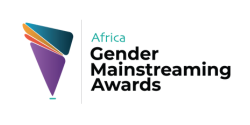Empowerment of women in the workforce means allowing women to have more control over their lives. It means giving them the freedom to make their own schedules, learn new skills and gain self-reliance. This does not have to relate to your own company, but can be empowering women generally in the workplace.
Empowerment is created when the strengths that women already bring to the company are recognised and utilised. Research provided by the United Nations has shown that businesses that promote women empowerment and gender equality are more profitable. As more businesses take part in gender equality measures and see their revenue increase as a result, the case for empowering women in the workplace is likely to become a more recognized goal.
This award recognises and acknowledges organizations that have not only advanced women in their workplaces through training and capacity building; but have also successfully transformed corporate behaviour and practices.
Individual
Nominate an Individual for a Gender Mainstreaming Awards category.
Company
Nominate a company for a Gender Mainstreaming Awards category.
| Aspects Adjudicated Upon | Weighting | What Information Needs to be Furnished | Criteria being applied in measurement |
|---|---|---|---|
| Design and Innovation | 30 | Detailed Overview of the Programme | Design, Innovation, detail and planning of the programme |
| Management | 10 | How the programme is/was managed | People involved / Frequency of meetings / Monitoring of implementation / Systems Utilised |
| Communication | 10 | How the programme was communicated | To Whom / Medium / Frequency / Format |
| Return on Investment / Business (Economic) Impact | 40 | Impact of the programme | Contribution to sustainability / profitability/ROI |
| Gender Targets (Broad Base) | 10 | Who the beneficiaries were | Number of women/percentage of staff/targets achieved |
